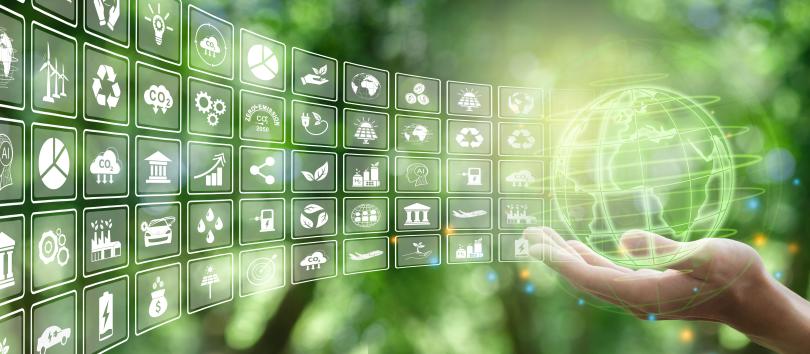
Online teaching as a tool for enhancing green skills – a teacher’s experience from Azerbaijan
Ilgar Zarbaliyev is passionate about using cutting edge data analysis and online education tools to enhance students’ learning outcomes and engagement.
A former lecturer at the National Observatory under the Ministry of Labour and Social Protection, who moved on to set up his own online teaching company, Excel World, in Baku, Ilgar has used his expertise in Microsoft education technology to combine digital teaching with a green skills approach.
After providing instruction for more than 1,100 ministry employees in digital applications, including Microsoft Word, PowerPoint, and Excel for students aged 20-45, and more advanced courses tailored to various professions – such as Excel for Accountants, Excel for HR Professionals, Power Query, Power Pivot, and Data Storytelling in Power BI, he branched out into further digital training under the Azerbaijan’s New Zealand Educational Platform, including completing a “comprehensive PL-300 Power BI Data Analyst Associate Exam Course, which spans a duration of seven hours.”
The experience left Ilgar convinced that digital skills and expertise can play a critical role in disseminating – and improving – the impact of green skills on tackling climate change and other environmental challenges.
“I realised that my students required more than just digital literacy skills – they needed knowledge on environmental matters and green technologies to become responsible global citizens,” Ilgar says.
His path to infusing digital teaching skills with a green approach was among the top applicants to the European Training Foundation (ETF)’s Green Skills Award this year, although it did not make the top ten. His emphasis on teaching applied digital skills for green learning dovetails with the ETF's priorities: indeed, the Turin-based agency works to actively promote the reform and development of skills training policies and support for lifelong learning in EU partner countries. The Green Skills Award is one of many activities designed to increase engagement with such work.
Ilgar attended conferences, seminars and workshops on environmental sustainability and green technologies, networking with experts and leaders in the area.
He created interactive lesson plans that incorporated virtual reality and gamification technologies to educate his students on sustainable agriculture, waste management, and renewable energy. He also introduced sustainable devices to his classrooms, such as solar-powered chargers and LED lighting. To encourage skills upgrading, he urged his students to think critically about their energy consumption habits and challenged them to develop innovate solutions to reduce their carbon footprint – including organising tree planting, and persuading one college principle to introduce bike racks to encourage students to cycle to classes.
One approach that combined digital and green skills caught his eye: a TED Monterey talk given by a Chinese electric vehicle entrepreneur, Freeman Shen. The founder and CEO of electric vehicle maker, WM Motor, who shared his ideas about employing Artificial Intelligence to reduce the number of cars on city streets – through automated parking, traffic control and car sharing – captured Ilgar’s imagination.
“Every day our environment is rapidly changing; as our world changes the needs of employees are also challenged. My main focus is dealing with data analysis tools and this presentation really encapsulates that,” Ilgar says.
A key tool he uses in his daily teaching is Microsoft’s 21st Century Learning Design, which encompasses six crucial dimensions or skills for fostering capable and versatile learners: knowledge construction, collaboration, real-world problem solving and innovation, skilled communication, self-regulation, and information and communication technology for learning.
The course offers students and opportunity to take the Technology Literacy for Educators exam, which is part of the pathway to earning a Microsoft Certified Educator credential.
He has also used AI tools to develop “interactive and captivating educational materials” he uses for both in person and online teaching, and have also used AI to analyse large sets of educational data “to detect patterns and tends in student performance.”
He had a YouTube channel where he posts video content related to business intelligence tools and Excel that caters to both English and Azerbaijani-speaking audiences.
All these technological tools, Ilgar stresses, can play a part in facilitating and improving the green skills that all learners today need.
“I believe that through these innovative teaching practices, I am able to inspire students to become responsible global citizens who are committed to making a positive impact on the world,” he concludes.
Did you like this article? If you would like to be notified when new content like this is published, subscribe to receive our email alerts.